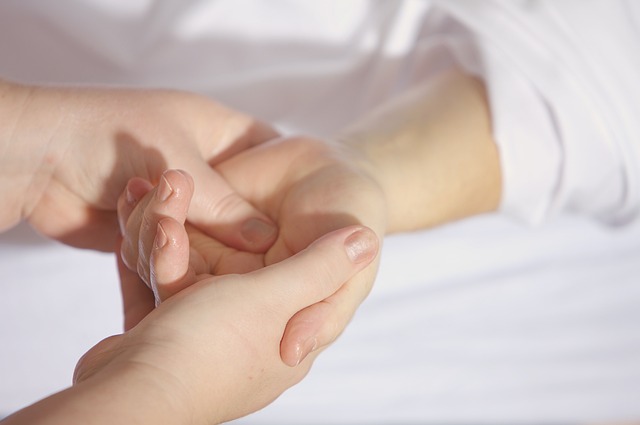Cystitis, commonly known as a urinary tract infection (UTI), is a painful condition affecting millions worldwide, primarily women. It occurs when bacteria enter the urinary tract and cause inflammation in the bladder. In this article, we will explore the causes of cystitis and discuss effective home remedies for prevention and treatment.
Causes of Cystitis:
Cystitis is often caused by the presence of bacteria in the urinary tract. The most common bacteria responsible for UTIs is Escherichia coli (E. coli), which normally resides in the intestines but can enter the urinary tract through the urethra. Other causes include:
a. Poor hygiene: Insufficient personal hygiene practices, such as not wiping from front to back after using the toilet, can contribute to bacterial entry into the urethra.
b. Sexual activity: Sexual intercourse can introduce bacteria into the urinary tract, increasing the risk of cystitis.
c. Urinary tract abnormalities: Certain anatomical or structural abnormalities in the urinary tract can make individuals more susceptible to cystitis.
d. Weakened immune system: A compromised immune system due to factors like stress, illness, or medication can reduce the body’s ability to fight off bacterial infections, increasing the likelihood of cystitis.
e. Hormonal changes: Fluctuations in hormone levels, such as those experienced during pregnancy or menopause can make the urinary tract more vulnerable to bacterial growth.
Prevention of Cystitis:
Taking proactive steps to prevent cystitis can help minimize the frequency and intensity of UTIs. Here are some preventive measures to consider:
a. Hydration: Drinking plenty of water helps flush out bacteria from the urinary tract and promotes overall urinary system health.
b. Urinate frequently: Avoid holding urine for prolonged periods and empty the bladder completely during each bathroom visit.
c. Maintain proper hygiene: Practice good personal hygiene, including wiping from front to back after using the toilet to prevent the spread of bacteria.
d. Urinate after intercourse: Urinating soon after sexual activity can help flush out bacteria that may have entered the urethra.
e. Avoid irritants: Clear potential bladder irritants like caffeine, alcohol, spicy foods, and acidic beverages.
f. Wear breathable underwear: Opt for cotton underwear and avoid tight-fitting clothing that can trap moisture, creating an environment conducive to bacterial growth.
Home Remedies for Cystitis:
While medical treatment is often necessary for cystitis, certain home remedies can help alleviate symptoms and promote healing. Here are some effective remedies:
a. Increase water intake: Hydration is a key in flushing out bacteria and promoting urinary health. Drink ample amounts of water throughout the day.
b. Cranberry juice: Cranberry juice or supplements may help prevent bacteria from adhering to the urinary tract walls, reducing the risk of infection.
c. Heat therapy: Applying a heating pad or hot water bottle to the lower abdominal area can help soothe pain and reduce inflammation.
d. Herbal remedies: Some herbs, such as uva ursi, goldenseal, and marshmallow root, possess antibacterial and anti-inflammatory properties that may support bladder health. However, consult a healthcare professional before using any herbal remedies.
e. Probiotics: Consuming probiotics-rich foods or taking probiotics supplements can promote a healthy balance of bacteria in the urinary tract, potentially reducing the risk of infections.
f. Pain relief medications: Over-the-counter pain relievers like ibuprofen or acetaminophen can provide temporary relief from discomfort and inflammation associated with cystitis. However, consult a healthcare professional before taking any medication.
When to Seek Medical Attention:
While home remedies can be effective for managing mild cases of cystitis, it is crucial to seek medical attention in certain situations:
a. Severe or persistent symptoms: Medical evaluation is necessary if symptoms worsen or persist despite home remedies.
b. Recurrent infections: If you experience frequent UTIs, your healthcare provider may recommend further investigation to identify any underlying causes.
c. Complications: If cystitis spreads to the kidneys or leads to other complications, immediate medical attention is essential.
Conclusion:
Cystitis can cause discomfort and disrupt daily life, but understanding the causes and implementing preventive measures can reduce the risk of developing UTIs. Home remedies can provide relief and support the healing process, but seeking medical attention for severe or recurrent symptoms is important. With proper care and attention, you can take control of your urinary health and minimize the impact of cystitis on your well-being.
You may also like
-
Art Therapy Powerful Pathways to Stress and Addiction Relief
-
How a Cardiac Test Helps Diagnose Silent Heart Conditions
-
Innovations in Fat Grafting Using the Toledo V Injection Cannula
-
Understanding Surgical Oncology- Comprehensive guide to Cancer Surgery
-
The Financial Impact of Critical Illness: Why Every Parent Should Consider It

